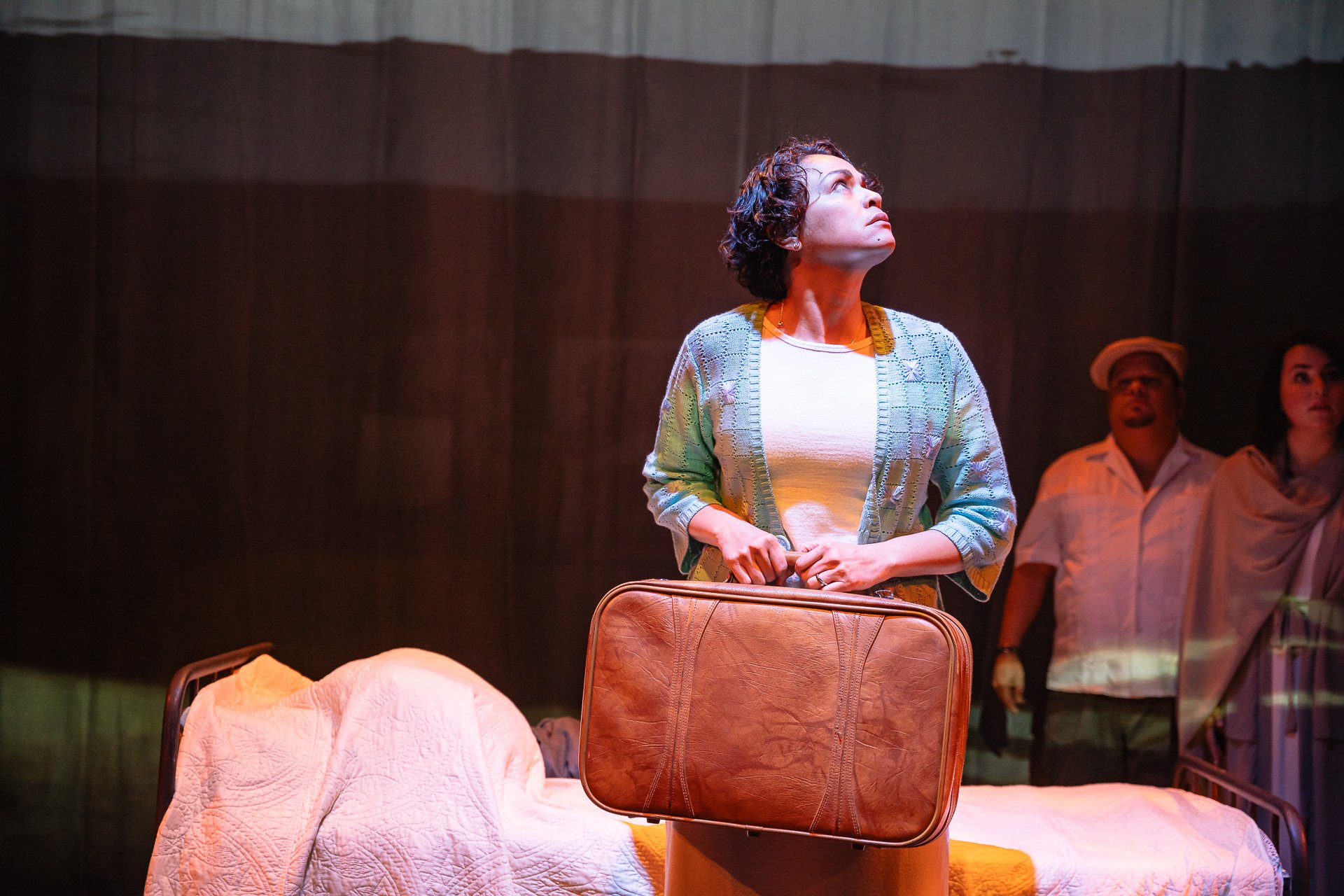TIFF 2020 | One Night in Miami
BY KRISTAL SOTOMAYOR AND NADINE PATTERSON ON SEPTEMBER 29, 2020
This TIFF 2020 coverage is published in collaboration with SIFT Media 215.
Still from One Night in Miami. (Courtesy of TIFF)
Review from Kristal Sotomayor
Imagine meeting your favorite historical figures before they became the personas that they are known for today. In Regina King’s directorial debut of One Night in Miami, she re-imagines a fictional friendship between Cassius Clay, Malcolm X, Jim Brown, and Sam Cooke. The screenplay was written by Kemp Powers and is based on his stage play with the same name. Set in a Miami hotel room in February 1964, the four protagonists meet up to celebrate Clay’s “Heavyweight Championship of the World” win.
The film beautifully portrays intimate moments of brotherhood between the four men as they challenge one another to grow. Within the confined space of a hotel room, the men are able to shed their stage personas and talk freely about their lives. Jim Brown (portrayed by Aldis Hodge) opens up about his blossoming career off of the football field and onto the film screen. Malcolm X (portrayed by Kingsley Ben‑Adir) worries for his life and fears that he is being followed by the FBI. Cassius Clay (portrayed by Eli Goree) deliberates on converting to Islam and changing his name to Muhammad Ali. Sam Cooke (portrayed by Leslie Odom Jr.) discusses his growing need to write soul music about the struggles faced in the Black community. Through their conversations, each man reveals their deepest worries and seeks guidance from one another.
Regina King is able to bring her expertise as an award-winning actress to her role as a director. Within the space of an ordinary hotel room, the actors are able to bring scenes to life through their powerful performances. One of my favorite moments was when Cassius Clay and Malcolm X took a moment to pray together. In the small hotel room, they unrolled their prayer mats and Malcolm X gently led Cassius Clay in prayer, correcting his posture and positioning of hands. The moments of vulnerability and compassion between the protagonists is a beautiful portrayal of friendship and solidarity. King describes the film as “a love story with a historical backdrop.”
This past week, Regina King won her fourth Primetime Emmy for Watchman in the “Outstanding Lead Actress in a Limited Series or Movie” category. With the Oscars coming soon, One Night in Miami is being applauded as a potential contender. The film was the first runner up for the People's Choice Award at the 2020 Toronto International Film Festival. One Night In Miami has sold worldwide rights to Amazon Studios and will be available on Prime later this year.
Review from Nadine Patterson
We asked Nadine Patterson, a Philadelphia based award-winning independent filmmaker and Program Manager of HipCinema Labs/SIFT Media 215, to share her opinion on this film.
The film shows us the power of music when it is tied culturally to the story. Too often Rock n Roll, Blues, R&B, and Folk music is used to bolster the narratives of white protagonists. Rarely, if ever, do we see “our music in service to our people.” Since the catalog of Black American Music is mostly owned by white mega-corporations, independent filmmakers like myself can rarely afford to use even one bar of music—from our own cultural heritage—in a film. This is criminal, but it is the way of capitalist America.
Regina King had a supporting role in the biopic, Ray, which was directed by Taylor Hackford and produced by a major studio. In it she played Ray Charles’ backup singer and key love interest, Margie Hendricks. The power of Black music, beyond igniting libido, is in igniting a change of heart and consciousness. I think this is something she learned in Ray and brought to full effect in One Night in Miami.
One of the key plot points in the film is the power of Black musical idioms to convey the reality of and importance of Black life. Malcolm X urges Sam Cooke to use his music as a weapon in the movement for change. Cooke, played by Philadelphia’s own Leslie Odom Jr., at first sees Malcolm’s criticism as naive, “music is a business, and I am damn good at my business,” is Cooke’s retort to Malcolm’s call for him to do more with his music.
This push and pull between the authentic use of Black history and Black culture in film is as old as cinema itself. White artists are used to putting on the skin of otherness to make a joke, demonize a racialized other, and to make money. What One Night in Miami does is issue a call to Black artists, entertainers, and sports figures to heed the call to use their vocation as a weapon, as part of an invocation to propel a people out of the depths of misery and into the free and open sunlit air.
Malcolm X did not live long enough in this plane to see the fruits of that One Night in Miami. I think he would have been proud of each of his friends. Each, in their remaining time on Earth, made sure to uplift their people in profound ways. They understood the importance of paving a way for others and the importance of sacrifice. The film shows us what it means to be fully human, in joy and sorrow. In defeat and triumph. And this broad view of Black men in particular, handsome, smart, strong, witty, kind, curious, spiritual, devout -- is something I have been waiting a lifetime to see. These moments are too rare.











